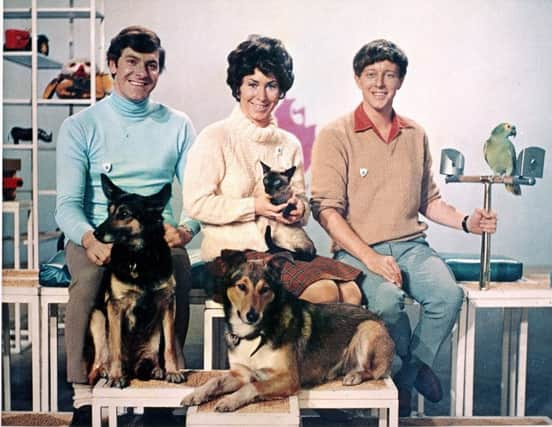Government spends £60m on reducing children's TV repeats


In the week that Blue Peter marked its 60th anniversary, an industry that has entertained generations of children, from the days of Muffin the Mule and Andy Pandy to Grange Hill, appears to be running out of money.
The independent sector, which once financed the biggest budgeted programmes for youngsters, with international hits like Thunderbirds, has left the field to the BBC, which is now almost the only commissioner of home-produced content for the youngest viewers.
Advertisement
Hide AdAdvertisement
Hide AdBut, in the best traditions of children’s storytelling, a hero, wielding wads of cash, has entered the picture.
He comes in the unlikely form of the Culture Secretary Jeremy Wright, who will today commit £60m of taxpayers’ money to halting what he says is the decline of UK-produced children’s content and reversing the growing trend of showing repeats.
His Department for Digital, Culture, Media and Sport is launching a search for what it calls “the next big thing” in children’s television, with help for fledgling production companies to develop and pitch their ideas to broadcasters.
The Department calculates that the BBC’s output now accounts for 87 per cent of all original children’s programmes made in the UK.
Advertisement
Hide AdAdvertisement
Hide AdBut production of new content for children has declined consistently over the past decade, with public service broadcasters – which also include ITV, Channel 4 and Channel 5 – spending around 40 per cent less than in 2006.
The deficit has been made up by screening repeats – a practice which dates back to the 1950s, when the BBC extended the life of such series as Bill and Ben and Camberwick Green over several generations.
By 2016, 98 per cent of children’s content on commercial channels, and 91 per cent on public service networks, were repeats, according to Government figures.
Mr Wright’s department said: “Whilst the BBC already shows high quality content through CBBC and CBeebies, this fund aims to increase plurality and support new voices, ideas, and content on a broader range of channels and platforms to make them a reality.”
Advertisement
Hide AdAdvertisement
Hide AdMargot James, the Government’s digital minister, said the new Young Audiences Content Fund would help the country’s “vibrant broadcast sector”.
She said: “Young people in the UK deserve high quality content that entertains, informs and reflects their experiences growing up across the country today.
“The UK broadcasting and production sectors are world renowned, and a success story to be proud of. This innovative project is an instrumental part of our support for the UK’s vibrant media sector and will help it continue to go from strength to strength.”
The BBC defended its corner. A spokesman said: “We’re in favour of a wide variety of children’s programming being made in the UK.
Advertisement
Hide AdAdvertisement
Hide Ad“However we worry that this scheme will use licence fee payers’ money ultimately to subsidise big global media companies such as Netflix and Amazon, without addressing issues parents care about like online safety.
“Commercial radio has never been healthier and is set to benefit from further deregulation. It’s not clear that the case for public subsidy, rather than market solutions, has been made - or indeed properly debated.
“There is little evidence schemes such as this are successful elsewhere and whatever happens, money should never be taken from the BBC’s budget to fund the scheme on an ongoing basis.”
Ed Vaizey, a former culture minister, echoed the BBC’s criticism, writing: “This kind of fund has not been successful elsewhere, and I have severe doubts that this £60 million will end up being money well spent. Ironically, the money could even end up providing subsidies to Netflix and Amazon, who certainly don’t need it.”
Advertisement
Hide AdAdvertisement
Hide AdToday’s cash injection follows the announcement last December of a pilot fund. The trade association Pact, which represents independent television and media companies, had lobbied for support from Westminster and said it supported the in initiative.
Its chief executive, John McVay, said: “Pact championed the need for development funding and the focus on children’s content, and is pleased this has been recognised.
“This will help bring new voices into the industry and people’s lives.”